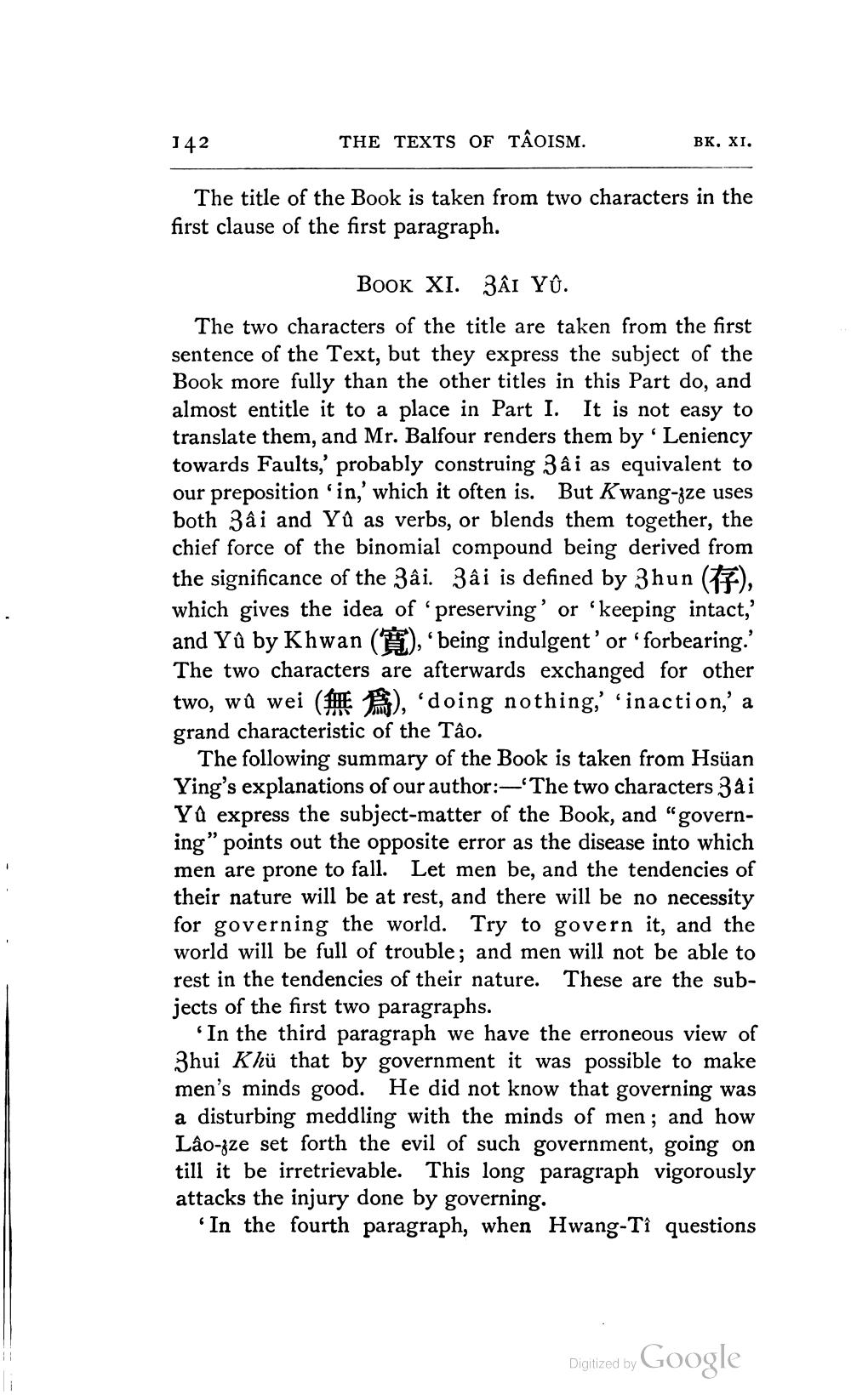________________
142
THE TEXTS OF TÂOISM.
BK, XI.
The title of the Book is taken from two characters in the first clause of the first paragraph.
Book XI. ZÂI Yû. The two characters of the title are taken from the first sentence of the Text, but they express the subject of the Book more fully than the other titles in this part do, and almost entitle it to a place in Part I. It is not easy to translate them, and Mr. Balfour renders them by 'Leniency towards Faults,' probably construing Zâi as equivalent to our preposition 'in,' which it often is. But Kwang-zze uses both Zâi and Yû as verbs, or blends them together, the chief force of the binomial compound being derived from the significance of the Zâi. Zâi is defined by Zhun (17), which gives the idea of preserving' or 'keeping intact, and Yû by Khwan (), being indulgent' or 'forbearing.' The two characters are afterwards exchanged for other two, wû wei (FER), 'doing nothing,' 'inaction,' a grand characteristic of the Tâo.
The following summary of the Book is taken from Hsuan Ying's explanations of our author:—'The two characters Zai Ya express the subject-matter of the Book, and "governing" points out the opposite error as the disease into which men are prone to fall. Let men be, and the tendencies of their nature will be at rest, and there will be no necessity for governing the world. Try to govern it, and the world will be full of trouble; and men will not be able to rest in the tendencies of their nature. These are the subjects of the first two paragraphs.
'In the third paragraph we have the erroneous view of Zhui Khü that by government it was possible to make men's minds good. He did not know that governing was a disturbing meddling with the minds of men ; and how Lâo-zze set forth the evil of such government, going on till it be irretrievable. This long paragraph vigorously attacks the injury done by governing.
In the fourth paragraph, when Hwang-Tî questions
Digitized by Google




